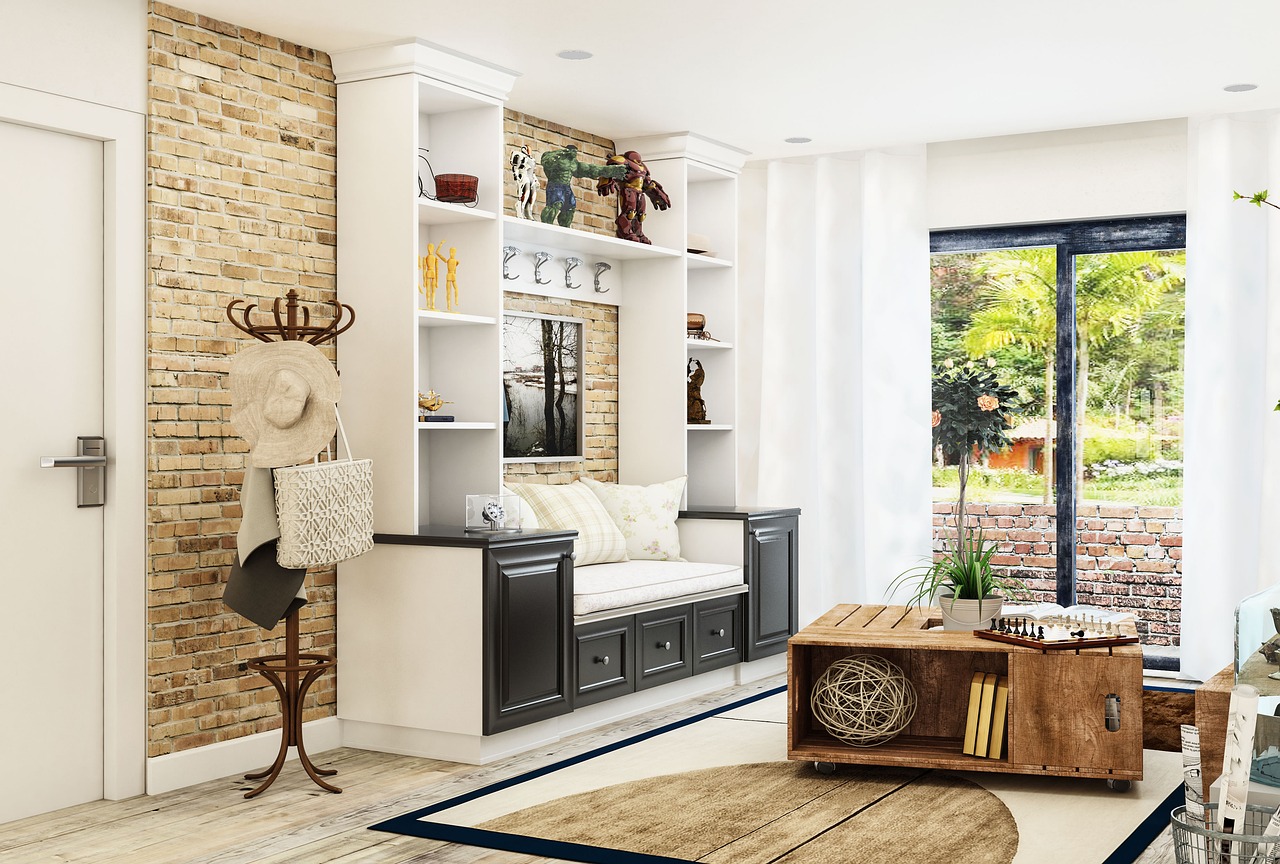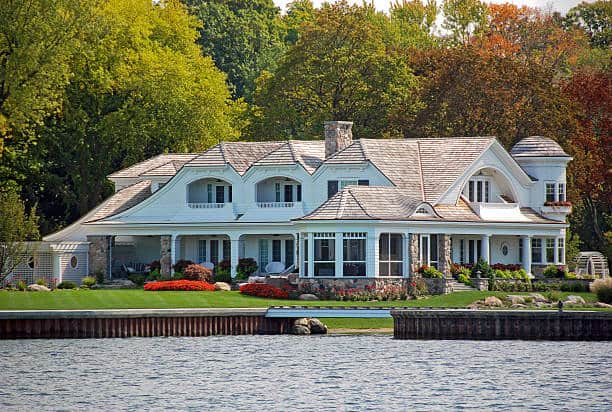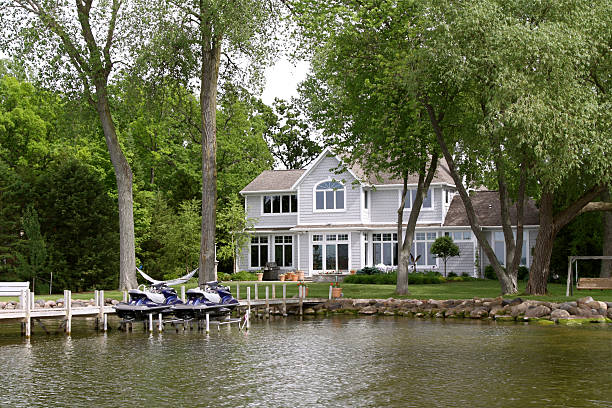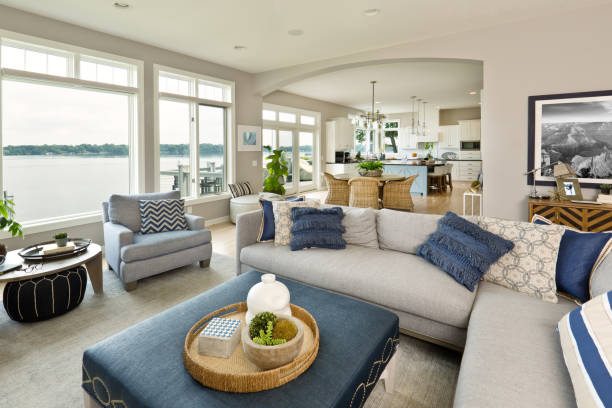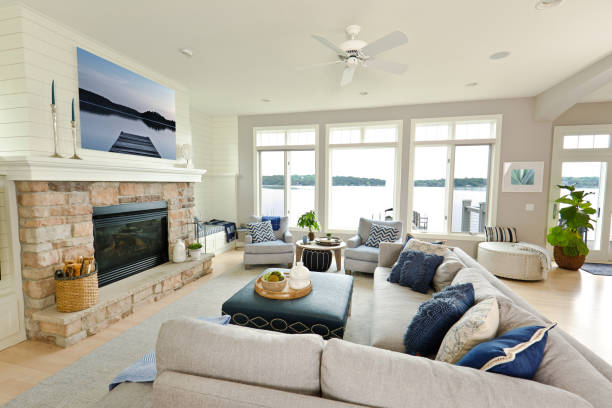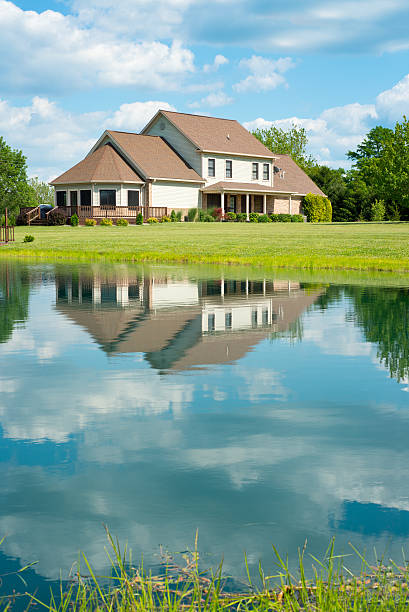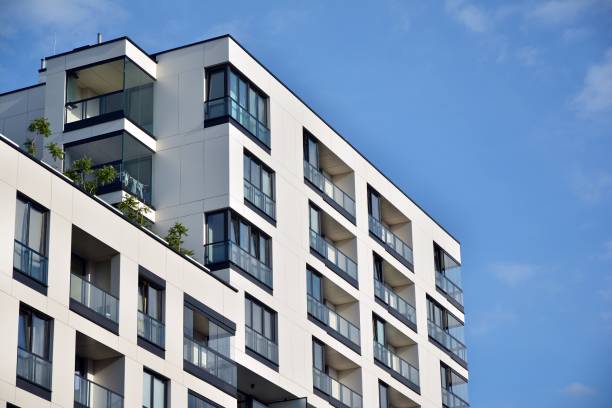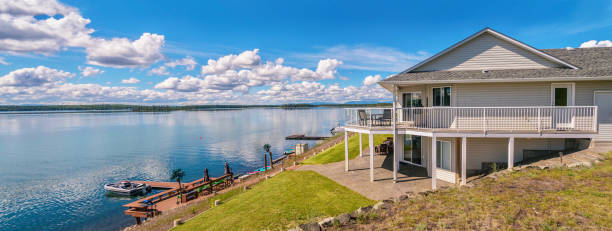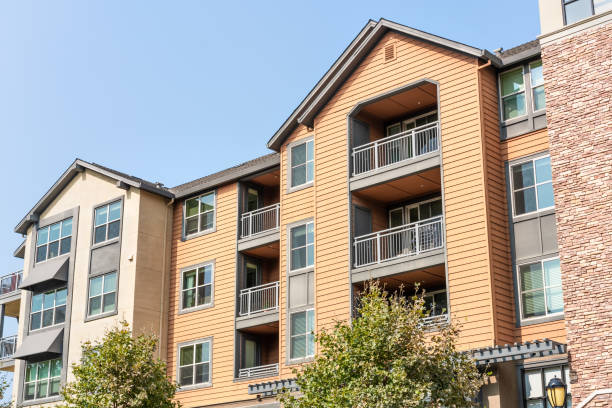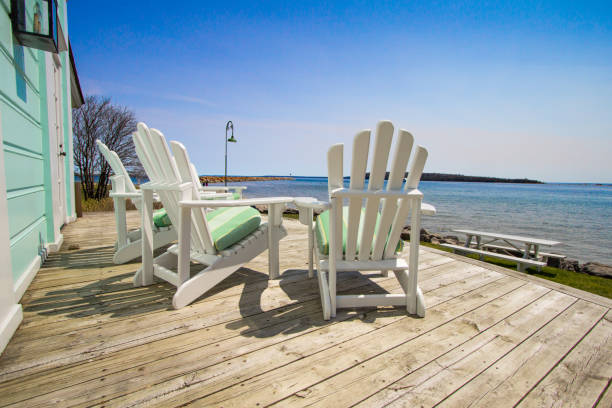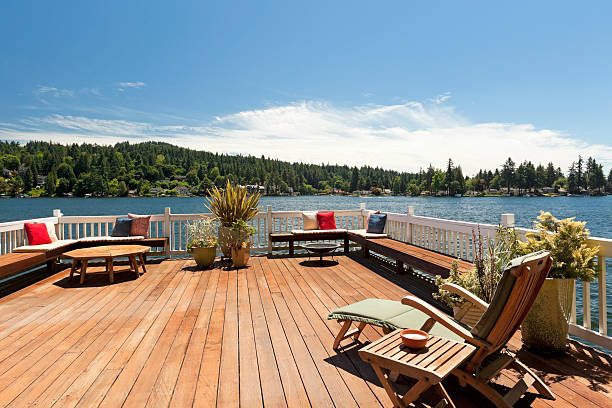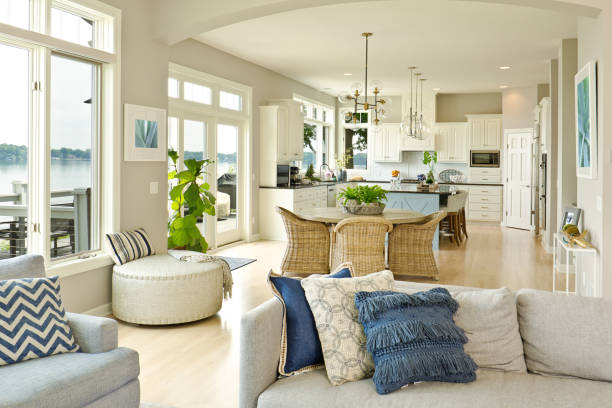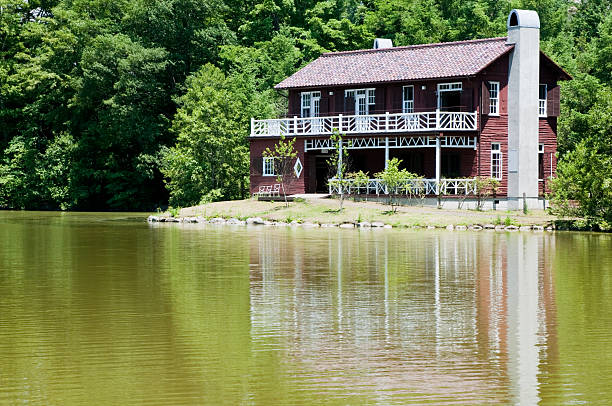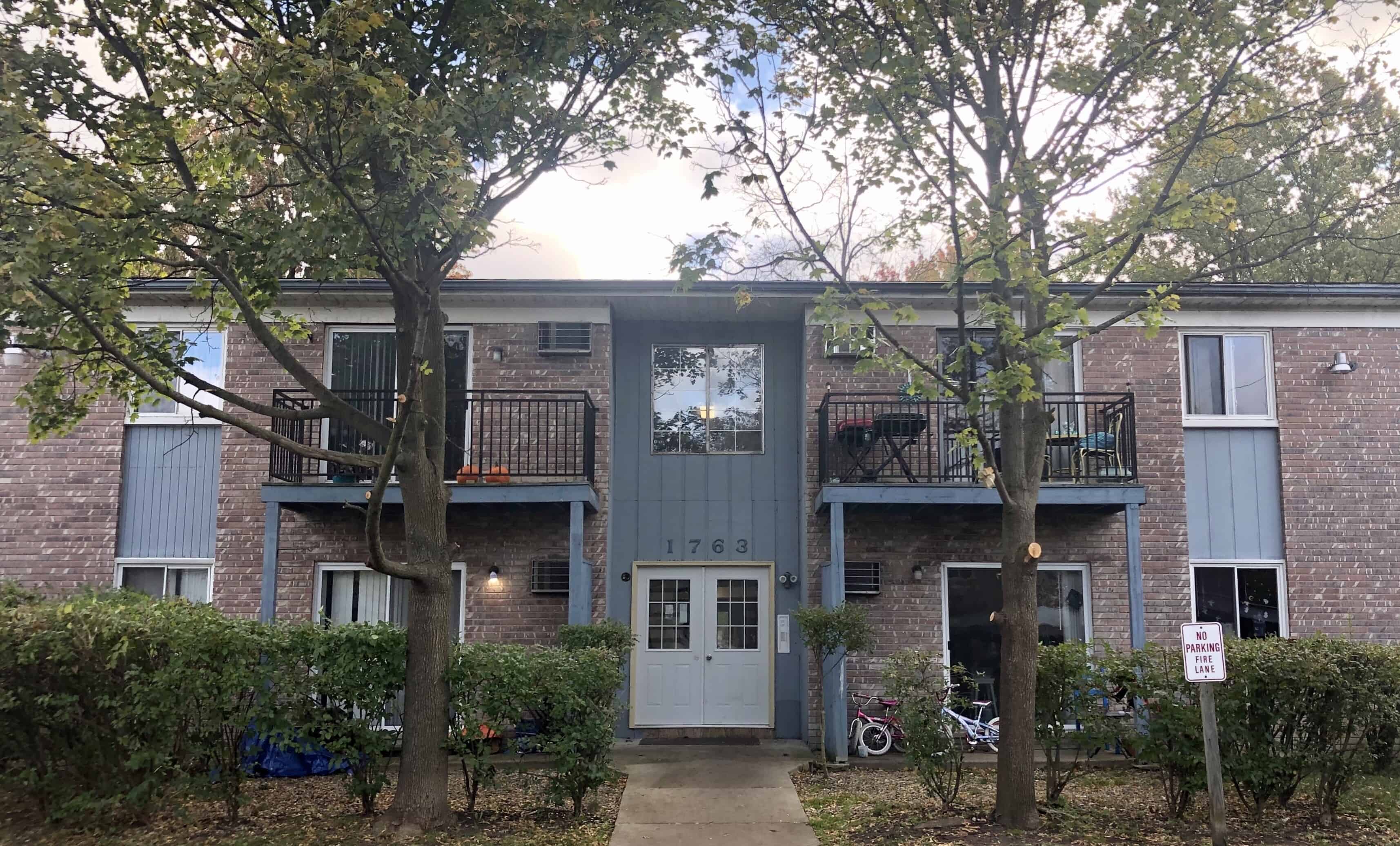September 6, 2021 at 1:26 pm
·
Justin Becker ·
Comments Off on Homes for Sale on Cass Lake, MI vs. Apartments for Rent
Whether you’re renting an apartment or buying a real estate home, it’s one of the most significant financial decisions you’ll make in your lifetime.
In the case of buying a real estate house, from figuring out the pricing to financing, it’s one lengthy process that anyone will want to get over as soon as possible.
One needs to pull resources together for the apartment for rent or the home for sale.
If you do find the right apartment online, or home, save search and follow up later, as you compare the apartments or homes for sale.
Homes for Sale on Cass Lake, MI
The largest and deepest Michigan inland lake, Cass Lake in Oakland County, is surrounded by Waterford Township, West Bloomfield, MI, Orchard Lake Village, and Keego Harbor.
Living around the cities nearby, such as West Bloomfield and Keego Harbor, can be a life-changing experience, and Cass Lake, MI, is one area known for its lake living experience.
That being said, before taking the plunge into the buyer pool on Cass Lake, it’s essential to consider whether homeownership is right for you.
When looking for a place to live in Oakland County, among the first questions you should ask yourself will drive the rest of your decision-making. Should you rent or buy?
Even though buying a real estate home in Cass Lake may seem attractive, with the promise of building equity and putting an end to monthly rent, the routine maintenance cost and repairs can drain you quickly.
You may need to work with a real estate brokerage firm. A real estate brokerage firm will help you secure the home of your choice.
Let’s dive into the pros and cons of houses for sale on Cass Lake, MI, vs. apartments for rent.
Pros of Homes for Sale
Buying a real estate home on Cass Lake comes with a lot of benefits.
Here are some of the perks you will enjoy if you choose to acquire a real estate home:
- Greater Privacy
- Good Long-Term Investment (Equity)
- Home Office
- Building Equity
Greater Privacy
One advantage of owning a home in Cass Lake is the greater privacy you get. Living in an apartment can be chaotic when you have a noisy neighbor.
Having to raise complaints about your noisy neighbor can be a daunting experience. However, with a home, you get the pleasure of silence; in other words, tranquility prevails.
Good Long-Term Investment (Equity)
It’s typical for homes to rise in value. According to the Federal Reserve Bank of St. Louis, the average price of homes sold in the United States rose 28% in 10 years, starting in 2009, and 10% alone from 2014 to 2019.
In that same decade, the housing market value surged by $11.3 trillion in value.
If you buy a home with 2 or 3 beds/baths, you’ll be investing in a long-term asset that has the potential to bring in huge profits.
It’s wise to work with real estate agents like Max Broock, which is one of Michigan’s oldest brokers, having opened their doors in 1895. Max Broock is still actively involved, but now under the umbrella of Real Estate One.
Home Office
When it comes to space, a home wins over renting an apartment. Most apartments for rent are small in size. Finding areas for your home office can be tricky, unless you convert another room for that purpose.
On the contrary, buying a real estate home on Cass Lake gives you more spaces that you can utilize however you want. If it’s a home office, it’ll be easier to set it up in one of your rooms.
Building Equity
Equity is the difference between what you can sell the home for and what you owe. Equity grows as you pay down your mortgage.
Over time, more of what you pay each month goes to the balance left on the loan, rather than the interest, building more equity.
Cons of Homes for Sale
While buying a real estate home may be appealing, the drawbacks should tell you whether you’re ready to have it or not.
Here are some of the cons of a home for sale:
- Less Mobility
- Constant Maintenance Cost
- High Upfront Cost
- Equity Doesn’t Grow Quickly
- Property Taxes
Less Mobility
Houses for sale give you stability; however, when taking a job, it may take more thought to accept an attractive employment offer that requires you to pick up and move to another city, like going from Keego Harbor to West Bloomfield.
It’s unlikely that you’ll put your home up for sale today and get a buyer tomorrow.
Constant Maintenance Cost
Homes for sale on Cass Lake aren’t a walk in the park; you’ll need to do constant maintenance and repairs. If you live in apartments for rent, you’ll get the pleasure of leaving maintenance to your landlord.
Maintenance for a home on Cass Lake can run into hundreds, and if not thousands, of dollars. For example, you may need to resurface your patio or attach a porch to your house.
High Upfront Cost
Securing a home requires substantial upfront costs that can be challenging to finance. Renting apartments requires much lower upfront costs.
For example, you will pay for the security deposit, at least one month’s rent, and lease application fee, among other upfront costs, but generally, it’s nothing compared to the costs of buying a real estate home.
Equity Doesn’t Grow Quickly
While it’s true that you will build equity over time, that doesn’t happen overnight. For this reason, you shouldn’t expect to build equity within a short span.
Property Taxes
The big headache comes when paying property taxes. A home that is attached to land is considered a real estate asset. As such, property taxes will be levied on the asset, as required by law.
On the other hand, apartments for rent require no property taxes. The tax responsibility is upon the owner of the property.
Pros of Apartments for Rent
Here are some of the perks you will enjoy if you choose to rent an apartment:
- More Flexibility
- No Maintenance Cost
- Access to Amenities
- No Down Payment
More Flexibility
If you want to move to another location, all you need to do is submit a notice to your landlord. If you’re in the middle of your lease, the downside may be the cost of breaking the lease.
After that, you pick up your house items and move swiftly. On the other hand, a home can be challenging to sell the next day. Therefore, it’s less flexible when you have an unstable job.
If you run into some financial difficulties and need to downsize, doing that can be an easy venture if you live in an apartment for rent.
All you have to do is talk to your landlord. Surprisingly, some landlords are kind enough to let you get away with the costs of breaking the lease.
No Maintenance Cost
One of the benefits of renting a home is that there are generally little to no maintenance costs or repair bills. This means that when you rent a property, your landlord assumes full responsibility for all maintenance, improvements, and repairs.
Access to Amenities
Another benefit of renting an apartment is access to amenities that would otherwise be a vast expense.
Luxuries such as an in-ground pool or a fitness center come standard at many midscale to upscale apartment complexes, with no additional charge to tenants.
No Down Payment
Another financial benefit of renting an apartment is the upfront cost you incur. Buying a real estate home will require huge payments upfront.
When renting an apartment, you’ll be asked to provide less (security deposit, at least one month’s rent, application fee, among others) compared to buying a home.
Cons of Apartments for Rent
Here are some of the cons of apartments for rent:
- Limited Customization Options
- Pet Restrictions
- No Equity
Limited Customization Options
Once you secure an apartment, more often than not, you’ll be required to leave the walls painting as-is, among other things. As such, you may be limited if you want to customize it to fit your style.
Pet Restrictions
If you’re a pet lover, then looking for a pet-friendly environment is another task on top of searching for an apartment to lease.
With that said, you can definitely find pet-friendly environments around Cass Lake, such as West Bloomfield, MI.
While you may find the perfect apartment that is spacious, has reasonable parking space, has security, and all of that, if their pet policy is unfriendly, you’re likely to pass on that opportunity.
No Equity
The rent you pay to your landlord doesn’t build you equity over time. For this reason, you have no long-term investment if you choose to pay rent monthly.
Conclusion
Whether you choose to buy a home or rent an apartment will largely depend on your financial situation.
Living around Cass Lake has many benefits. For example, West Bloomfield, MI, and Keego Harbor are some of the safest cities in Michigan.
However, after making the comparison above, we can ultimately conclude, in our opinion, that apartments are the better option.
Read more
August 16, 2021 at 1:36 pm
·
Justin Becker ·
Comments Off on How to Read an Apartment Lease
Whether you’re a seasoned renter or this is your first rental, leases can be very confusing. In most cases, they contain several legal jargons that are difficult to read, thus leading to many questions.
With at least 37% of the population in the United States renting their residence, you’re certainly not alone.
If you happen to be among the renting population, you might need some assistance deciphering the lease before signing it.
In this article, we’ll look at the best way you can read your lease, and understand it, as far as real estate is concerned.
How to Read an Apartment Lease
Let’s focus on how you can read a real estate apartment lease:
What’s an Apartment Lease Agreement?
A lease is a contract that outlines the terms between a landlord and tenant.
Once the parties involved sign a lease agreement, it becomes legally binding.
Depending on where you rent, lease agreements can have different clauses, and they may even look different.
Fixed-Term Tenancy (Standard 12-Month Lease)
A fixed-term tenancy normally lasts for 12-14 months, or longer.
Here, the rental agreement involves agreeing to comply with the rules in the lease, for the specified time. It means that you’ll abide by community rules, pay monthly rent and pay pet fees.
The landlord may not change anything in the lease before it expires, but there are landlords who may allow you to break the lease early.
Periodic Tenancy (Month-to-Month Lease)
This type of lease is relevant for short term renters. The lease may be ended or changed, by either you or the landlord, after proper notice is submitted. In most cases, proper notice equates to 30 days.
What Does a Lease Agreement Look Like?
Most leases differ depending on your property management company or landlord. The information in the lease is typically in hard-to-decipher legal terms.
Let’s look at important things to pay attention to in a typical lease:
Premises and Parties
A lease must start with a premises and parties section. This part introduces the lease.
Under this section, you’ll find a space to write your name. If you have roommates or children, their names should be there too.
All occupants above 18 years of age must also sign the lease.
It would be a good idea if you went through this section keenly since it’s where the roles are established.
This section sometimes includes your new home address. The address of the property management company or landlord must also be available.
Terms
There is a section that specifically stipulates the term of the lease. This section can also include the cost of your rent.
Here, you should ensure that the cost of rent, along with the start and end of your lease dates, are correct. If there is any problem, kindly ask the landlord to fix it.
Rental Payments
There is also a special section on rental payments. This section helps you understand when your rent is due, and the grace period you have to pay.
In most cases rent is due every first of the month. In such a case, you will need a prorated amount for your first month’s rent. If there are things you do not understand, kindly ask for clarification.
Security Deposit
You’re required to pay a security deposit in most apartments, along with utilities, application fees and rent.
The security deposit amount typically varies with the credit score. However, you’ll get the exact deposit rent amount before you sign your lease.
It would be best if you double-checked through this section to ensure everything is clear.
Late Charge
This section outlines the late charges that you’ll incur if you pay rent late. The section might be on its own, or it might be part of the payment section.
In some cases, insufficient funds in the account or bad checks can count as late rent payments, and may be subject to the fee.
Utilities
The utility section varies depending on the location of your unit, because each apartment handles utilities uniquely.
In some cases, utilities are included in the rent. However, others charge separately for utilities.
If you don’t understand things here, kindly ask your landlord for clarification.
Pets
You can ignore this section if you don’t have pets. If you want to live in a community that doesn’t allow pets, ensure that it’s stated in your lease.
Some of the terms you’ll encounter in this section include additional rules, violations of pet rules, pet fees and pet deposit.
You might have to provide information about your pet if you decide to join a pet-friendly community. Make sure the dollar amount is clearly stated if you have a monthly pet fee.
Occupants
The occupants or occupancy clause is another important section that you should understand in your lease. It involves the rules that your guests must abide by if they want to stay in or visit the rental property.
It may state the period that a guest is allowed to stay in your home. In most cases, the time for visitors is, at most, between 10-15 days.
In case someone wants to stay longer, you may need permission, so be sure to make sure you are very clear on this clause.
Common Sense Clauses
Some sections are more, or less common-sense, than others. This includes sections to do with criminal activities and conduct.
The sections may outline that drug use and criminal activities aren’t allowed and might form grounds for immediate eviction.
Repair and Maintenance Clause
This section typically spells out the person or entity responsible for paying for repairs, in case problems arise. This is, therefore, one section that you should go through in absolute detail.
If you stay in an apartment community or mobile home park, you might not be allowed to bring a third party in for repairs, unless there is prior approval from your landlord.
This section usually also has rules you must follow to keep the apartment clean.
Right of Entry
Landlords include the right to enter your apartment or property, however it can only happen under specific conditions and reasons.
For instance, a safety inspection may allow a landlord to visit your home. With that said, they must give notice, which in most cases is a minimum of 24 hours.
Move Out Early
There is also a clause that talks about early termination, or breaking a rental agreement. Here, different landlords come up with various rules, so be sure to understand them in case you ever need to abruptly move.
Resident Default
Although this section is somewhat wordy, it’s very important. It basically states that you can get evicted if you disregard the rules.
The ways you can default include, but are not limited to, committing a crime, abandoning the apartment or not paying rent.
The phrase used here is ‘applicable notice.’
Understanding Lease Jargon
You could come across some phrases that may be confusing. Let’s explore them below:
Lessee and Lessor
A lessor represents your property manager or landlord, while a lessee is you, the renter or tenant.
Lease Start and End
The start date represents the date that you become a tenant in an apartment. The end date, on the other hand, is the last day you are officially a tenant, signifying the end of the lease.
Abatement
An abatement is a clause that allows tenants to pause payment until the property manager completes property repairs.
The repairs that may fall under abatement include, but not limited to:
● Safety Issues
● Fires
● Natural Disasters
● Floods
A burnt out bulb or dripping faucet doesn’t constitute an abatement.
Automatic Renewal
An automatic renewal involves a situation where you must give proper notice, to your property manager or landlord, of your intention not to renew your lease.
If you don’t give a notice, you’re automatically given a new lease.
Notice to Vacate
Even when you don’t have automatic renewal, you might still be required to give the notice to vacate. It’s a letter to notify the landlord of your desire to leave, and is typically given 30 days prior.
Abandonment
If you don’t maintain your house or apartment and do not inform your landlord of your intentions to move out, it constitutes abandonment, and forms a ground for eviction.
States have varying abandonment laws, so be sure to understand the local laws in your area.
Holdover Tenant
A holdover tenant is a tenant who refuses to leave a rental unit after the expiration of the lease.
For instance, if your lease expires on the 1st, and you are still there on the 2nd, you’re considered a holdover tenant.
Quiet Enjoyment
Every tenant has the right to quiet enjoyment. This means that you have the right to stay in your unit without fear of eviction by the landlord, unaddressed safety concerns, or noisy neighbors.
Normal Wear and Tear
This involves minor damages that happen to a property after occupation. Repairs that are considered beyond normal wear and tear may come with additional costs.
Implied Warranty and Habitability
This is an implied right. The landlord should ensure that the conditions within your apartment are livable and up to set standards.
Read more
August 9, 2021 at 2:25 pm
·
Justin Becker ·
Comments Off on What is Normal Wear and Tear in an Apartment?
Every new thing, after a period of use, deteriorates and becomes raged, faded, or outright spoiled. In other words, it is considered normal wear and tear.
It happens to rental properties as well. However, there is a difference between normal wear and tear brought about by time, and property damage inflicted through acts of negligence and carelessness.
For example, two nail holes on the wall might be considered normal tear, normal wear, but multiple nail holes is a different story.
What is Normal Wear and Tear in an Apartment?
Normal wear and tear is deterioration that a building naturally and gradually experiences after time due to age.
Now, normal wear and tear does need fixing, or replacing, after a while, i.e. in high humidity, wooden doors absorb moisture in the air, causing them to get stuck.
On the other hand, however, there is the wear and tear that is purposely caused by a tenant, or their guests, that speeds up the deterioration of a building’s fabric or hardware. This could happen intentionally or by accident, and the manager may have to charge whoever is occupying the rental unit for the damages.
Is Wear and Tear Normal in Apartments?
It is ideal for homeowners to invest in the best material and hardware when building, with the hope that it will help the building last longer. With that said every homeowner is aware of what is considered normal wear and tear, which is why a building needs frequent maintenance here and there.
It is also the dream of every homeowner to encounter a responsible tenant.
A responsible tenant means that they keep up the rental property, without needing the landlord to frequently visit for repairs. It will save time and money, even though the tenants may be held responsible for the rental property damages.
While normal wear and tear is the homeowner’s sole responsibility, any property damage that is not considered normal wear and tear, during an evaluation, will automatically fall on the person occupying the residence.
The period between one tenant moving out and another moving in is when the residence undergoes the move out inspection to determine what repairs are deemed normal wear and tear and what is not.
Then, after all of the repairs are completed and the new tenant moves in, they, together with the manager, will inspect the unit, checking and ensuring that everything is in order.
When that new tenant eventually moves out, another inspection is done to ensure that everything is as it was before, or with minimal and acceptable property damage, and the process starts all over again.
Determining Acceptable Wear and Tear
Part of the requirements for moving into a new unit is paying a security deposit that is refundable at the end of a tenant’s stay. This deposit acts as security for tenant damage that occurs during their stay, that does not qualify as normal wear and tear.
Some factors that mirror normal property damage to a building are:
● Age and State of the Building
● Period of Tenant Occupation
● Extent of the Property Damage
Age and State of the Building
Every building has a life span depending on the material used for constructing it, and the maintenance it receives to keep it in check.
An older building, by default, faces rapid deterioration, as compared to a newer building. For example, with harsh weather conditions, the roof of an older building may start to leak, which can result in staining and damage to the ceiling. This would be considered normal wear and tear, as long as the tenant notifies the management team/landlord immediately.
Another example is when walls and window panes crack because of some fault in the foundation. Thi has nothing at all to do with the tenant, even if it occurs during their stay.
Period of Tenant Occupation
A tenant moves in when everything is approved to be in good condition.
If they live in the apartment for a long period of time, it may be expected that the walls will need to be repainted, or the carpets will need to be replaced, by the time they are moving out, because the paint will have faded or peeled, and the carpet will have worn, in some areas.
These are just a few examples of what would be considered normal wear and tear when a unit is occupied for an extended period of time. Now, on the other hand, if these same repairs are needed after a resident moves out within a year or two, these very same repairs may not be considered normal wear and tear.
Extent of the Property Damage
Even when property damage has occurred, still the landlord evaluates to determine the cause.
A sink that drips water might be okay, but one that does not drain water at all could be due to carelessness, and the tenant will have to incur charges on that.
Examples of normal wear and tear is:
- Fading and peeling of wall paints around the house
- Cracking of the walls due to faulty foundation
- Wearing of carpets and rugs
- Peeling of wallpaper as a result of weak glue
- Bathroom door paints peeling because of water moisture
- Minor scrapes or scratches on wood floors
- Rotting or cracking of wooden window sills
- Worn spots or thinning varnish on wood floors due to regular use
Normal Wear and Tear vs. Facilitated Property Damages
Among the damages that may be found during an inspection are those that were caused through human error. The landlord will be strict about differentiating between normal wear and tear vs. facilitated property damages.
At this point, the collateral is the tenant’s security deposit, to cover damages. If the landlord establishes that the damages are a result of any of the points below, the tenant will likely miss out on some, if not all of their security deposit.
These damages could happen intentionally, or by accidents and they could be inflicted through:
● Carelessness.
● Abuse and Misuse
● Negligence
Carelessness
Some people do not take care of things, especially if they are not theirs. They do not feel a pinch of pity for the landlord of the building or their investment.
Say the tenant is an artist who likes to draw and paint at home. A responsible artist will place protective materials on the floor to keep the paint that spills from getting on the floor while they work on their art. However, a careless artist will let paint just drop on the floor, potentially permanently damaging the tiles.
Abuse and Misuse
When a tenant chooses to live in a rental unit, it’s because they are OK with the style, layout and decor. Still, if they take it upon themselves to renovate the unit’s interior without the landlord’s knowledge, it will be considered abuse.
At the end of their stay, it will be their responsibility to reverse the changes they made either by themselves or by choosing to pay the landlord for the damages.
It is also considered abuse if a tenant decides to drag furniture over unprotected floor tiles, while leaving visible streaks and marks, instead of lifting or carrying them.
Another example is if they pour food particles or grease down the sink that result in blockages, that again is considered abuse.
Negligence
When something in the rental unit is not acting right, the tenant must inform the manager in order to avoid further damage. This is simply because the manager typically does not have everyday access to the building.
If they fail to inform, and greater damage happens, the tenant will have then facilitated the damage through negligence. In short, it will be considered the tenant’s responsibility.
For example, old and faulty circuit breakers may experience an overcharge, or an undercharge, causing lights to flicker, or sockets to spark. To prevent further damage and safety hazards, the tenant should report the mishap to the management, so a professional electrician can be arranged to fix it.
Examples of other rental unit damages that are not considered as normal are:
- Children drawing on walls with chalk or crayons
- Pieces of flooring go missing, no matter if it’s carpet, tile, wood, etc.
- Wallpaper that is torn or ripped apart and needs to be replaced
- Toilets that do not flush and sinks that do not drain water
- Tiles that are broken or chipped
- Lightings and sockets that are burned out or do not work
- Broken window panes due to banging or smashing
Final Thought
It is extremely important, as a tenant, to be careful and mindful of all of the things in the unit.
This is because, at the end of the stay, tenant’s expect the security deposit they paid, prior to moving in, to be paid back to them.
To be precise, what is considered normal wear and tear will separate what will be charged and what will not be charged against the security deposit, when the rental’s repairs need to be made for the next resident.
If the tenant is deemed responsible for the repairs, they may get charged the full amount, but their security deposit will be used to cover the costs, as per the lease agreement, in case of property damage.
Read more
November 21, 2019 at 12:58 pm
·
Justin Becker ·
Comments Off on Why You Should Rent an Apartment
Is it better to rent an apartment or buy a house? Are apartments better than houses? Many people find it difficult to give definitive answers to these questions.
Buying a home can be an expensive and time-consuming investment. There are many pros and cons to consider, such as your credit score (to get approved for a mortgage), how long you plan to stay in the home, how much money you can afford for a down payment, among other factors.

With that said, renting can be cheaper than buying, especially if your goal is to occupy the space for a short amount of time, but renting also means that you won’t own the property.
Why You Should Rent an Apartment
There are numerous advantages to renting Keego Harbor apartments. The process of renting an apartment is straightforward and convenient. You can find many properties to rent in your desired location, and the process is quick and easy.
The number of people who rent apartments is constantly increasing. The reason for this is that, aside from the lower cost of renting vs. purchasing, one can move around and explore other regions with greater ease. Renting allows the freedom to live in any city for as long as one would like without being tied to one location due to a mortgage.
Renting an apartment vs. buying a home is one of the most important financial decisions you’ll ever make, so it’s critical to get it right. With that said, if you’re interested in learning more about what renting an apartment may accomplish for you, keep reading.
Little to No Repair or Maintenance Costs
Owning a home is one of the most significant investments you can make, but one of the biggest downsides is the high costs of repair and maintenance.
The average homeowner spends $2,000 every year to keep their house in good condition. This includes major costs, such as repairing appliances, and routine maintenance, like lawn care, gardening, and exterior upkeep.
These costs could be even higher in big cities like San Francisco and New York.
Expenses like these add up quickly, meaning that homeowners will have to spend thousands more over their lifetime than renters.
In apartments, on the other hand, the homeowner covers substantial repair and maintenance expenditures; thus, renters, unlike homeowners, have less costs for the same. This is just the first reason why renting an apartment is better than owning a house.
Less Upfront Costs When Renting an Apartment
Buying a home requires a substantial amount of money upfront. For example, the average down payment on a home is 20% (if you want to avoid private mortgage insurance), and the median list price for a home in the U.S. is $239,000. This means that the average person would need to come up with $47,800 for their down payment.
If you’re thinking about renting an apartment, however, there is no need for a down payment. In most cases, you will need what is a security deposit for an apartment, the first month’s rent, an application fee, a one-time pet charge (if you are a pet owner), and the first month’s pet rent.
In other words, the upfront cost for a rental property will cost far less compared to buying a home because of the higher down payment cost.
Access to Communal Amenities
Renting an apartment within a complex or community has its advantages. Apartments typically have more amenities than a home because they are targeted to the larger population of renters. For example, a renter may be able to take advantage of their building’s fitness center, pool, on-site parking, concierge services, or access to a shuttle.
In addition, renting offers the freedom to access the amenities without the need of maintaining the property.
If homeowners want the same amenities, they will have to invest thousands of dollars in things like a fitness facility and a swimming pool. In addition, the cost of maintenance is something a homeowner would have to come up with themselves.
No Obligation to Pay Property Taxes
When determining whether to lease an apartment or buy a home, the duty of paying property taxes is sometimes disregarded.
Owning your own house has numerous benefits, but it also has various drawbacks. Property taxes can be as much as 2% of your home’s value, which can quickly add up.
With that said, a resident of an apartment is not responsible for property taxes. These tax costs are paid by the landlord, who then typically builds that expense into the rental rate that the tenant pays. So, if you are looking to lease an apartment, there is no reason to be concerned with huge tax bills or tax deductions.
Everyone has different financial circumstances/financial situation, so it won’t make any financial sense to buy a home when you don’t have a stable income. Committing to large fixed monthly payments for a mortgage could be problematic (it’s a long-term commitment).
More Freedom in Terms of Where You Can Live
Renting an apartment gives you the freedom of practically living anywhere. It allows you to live in a new city and explore your surroundings.
If you are looking for a change of pace, renting an apartment is the perfect solution. When you lease, you are not stuck in one place; your next adventure can be as close as a ten-minute drive away.
On the other hand, if you are a homeowner, but you are looking for a change of scenery or need more space and decide it’s time to move on, you may need to sell your home first.
Selling your home usually takes some time to find the right buyer. Many potential obstacles could come up when selling your home. For instance, you may need to lower the price to attract potential buyers if it’s not selling as fast as you need it to.
Furthermore, if you want to sell your house quickly, you will usually have to pay a real estate agent (closing costs associated with this are also high). These reasons make apartment living an attractive alternative because all you need to do is find another apartment in you desired location and move out when your lease is up.
No Need to Worry About the Value of the Property
Purchasing a home is not always a straightforward process; there is a risk that the home value may depreciate over time.
For example, if new houses with superior design are built in your neighborhood, your home may lose value. All that is left for you to do then is upgrade to meet the new standards, which will cost money.
On the other hand, you won’t have to be concerned about the potential of property value depreciation if you lease an apartment.
The Flexibility to Downsize
What happens when the landlord increases your rent and you can’t afford the new rate? You downsize! This way you will be able to pay your bills, live comfortably, and save money from high rent rates all at once.
Living in an apartment gives you the luxury of moving in the quickest amount of time possible. On the other hand, when you have to downsize from a home to an apartment, it can be time-consuming and stressful.
Lower Insurance Cost
Insurance is an important consideration for home buyers and renters (renters insurance) alike. However, a homeowner faces a much larger insurance cost (homeowners insurance) compared to a renter. With that said, a homeowner has significantly higher chances of having a large expense, like replacing their roof, foundation, or cleaning up after a natural disaster.
For the sake of safety, both the renter’s insurance and the homeowner’s insurance policies must be renewed regularly. According to the Insurance Information Institute, renters insurance costs $179 per year, on average, but homeowner’s insurance typically costs around $1,249 per year.
Simply put, tenants pay less for renter’s insurance compared to what most homeowners pay for theirs.
Less Utility Bills
The cost of utility bills that apartment renters pay is generally lower than homeowners. The only stipulation is the renter must be mindful of the amount of electricity and natural gas they use.
If the renter is not mindful of their usage, they can pay higher bills than necessary.
On the other hand, homeowners can only control so much when it comes to the cost of their utility bills, no matter how much they try to reduce their consumption. They have things like security systems, among other energy bills, that the renter often doesn’t have an obligation to pay for every month.
Less Cleaning Space
Cleaning your own home is a big job, and the bigger the living space, the more time and energy it takes. Many homeowners choose to hire cleaning services, which undoubtedly adds to their expenses.
Cleaning services can get costly (adding to monthly payment for housing expenses), and for those living in larger homes, the cost of hiring a cleaning company can quickly add up. So, if you are on a budget, don’t rule out doing your own cleaning.
On the other hand, cleaning an apartment, no matter if it’s 1-bedroom apartments in Keego Harbor, MI or 2-bedroom apartments in Keego Harbor, MI, is a task you can spend very little time each day on, whereas cleaning a home can take hours. Thus, when time is tight, and you have limited resources, it may be better to just have an apartment space to clean.
You Don’t Need a Mortgage
From the approval process to losing the property as collateral, many people have terrible experiences with mortgages. A mortgage is a loan from a bank or credit union with the purpose being to buy a house, or other real estate. The title of the said asset would have a lean on it from the lending financial institution until the loan is paid off in its entirety.
Mortgages are often used because real estate is considered a type of collateral for loans. This may seem great on paper, but that is far from the reality when you consider the interest you end up paying over the life of the loan, and especially what happens when you fall behind a couple of months on your mortgage payments.
Unlike owning a property, renting an apartment does not require a mortgage debt (which means no mortgage interest). All you need to do is cover the upfront costs, which typically includes the first month’s rent, a security deposit, and an application fee.
No Monthly Homeowners Association Fees
The apartment renter doesn’t have the obligation of paying any Homeowners Association fees (HOA Fees). The HOA fees, which are common in condominium buildings or communities with several houses that share amenities, go towards maintaining the common areas used by residents.
In addition, most apartment complexes organize events and give their tenants a chance to enjoy without incurring an extra cost. For example, management sponsored holiday gatherings are common in many apartment communities.
Instead of wasting money on monthly HOA fees, you can use that savings towards your emergency fund.
Take Away: Buying Homes
Buying homes is like trading in the stock market, you need to maintain accurate information if you want to find the right property that will build your home equity over time.
Despite the greater required upfront monies, along with other costs, purchasing a home is an investment that you can put your money into and rent out while you live in an apartment.
A mortgage could be considered good debt or bad debt. This all depends on your repayment plan. So, compare the mortgage rates before signing the dotted lines.
Final Thought
In recent years, the average home values have been on the rise. This can be attributed to inflation and a lack of inventory in certain places, but it’s also due in part to an increase in demand.
With this increase in demand, housing prices/home prices will naturally increase as well. In this hot market, purchasing a home may not be feasible for many people looking to buy a property or build wealth/build equity.
With that said, renting apartments generally offers greater housing options. Also, renters typically do not have the same financial commitment as homeowners, which allows them to move to different locations with ease.
Read more
